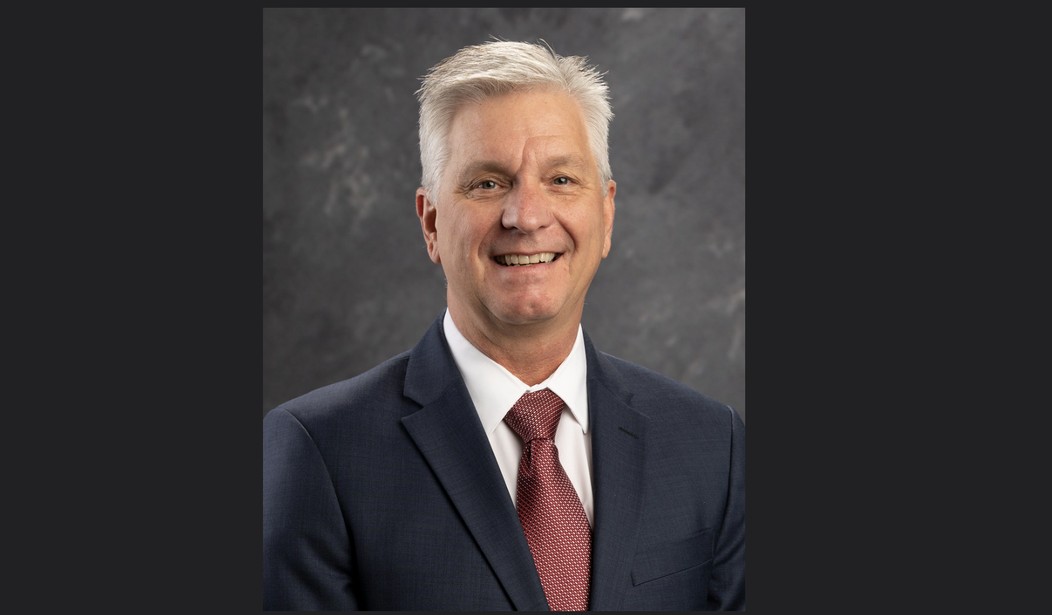I believe a that a society can only be as compassionate as long as it can spend other people’s money. When you start spending your own money, it’s funny how cruel and selfish people can get.
And an industrialized society can only be as green as it can afford to be without destroying itself. Save the trees — as long as you can still build my hardwood floors.
These are very simple rules that great big grown-up countries should live by. Immature nations ignore those rules and end up circling the drain. Fortunately, there are just enough leaders in the United States like Federal Reserve Governor Christopher Waller who understand the rules and want to save us from the climate change hysterics.
Federal Reserve Gov. #ChristopherWaller said that #ClimateChange does not present a “sufficiently unique” risk to the U.S. financial system. https://t.co/rUWAb5NvAT
— NTD News (@NTDNews) May 13, 2023
“Climate change is real, but I do not believe it poses a serious risk to the safety and soundness of large banks or the financial stability of the United States,” Waller told an economic conference in Spain. “Risks are risks … My job is to make sure that the financial system is resilient to a range of risks. And I believe risks posed by climate change are not sufficiently unique or material to merit special treatment.”
The world is not going to end tomorrow, next week, or next year, and probably not by next century. Waller is making the simple commonsense point that dealing with the banking crisis is a far more immediate threat than any threat posed by climate change.
“In March we watched a bank run on Silicon Valley Bank” that heightened attention to the levels of uninsured deposits at some institutions, Waller said. “Those are the kinds of things I am staring at right now. I am not as worried about climate as I am about things like banks failing because of bank runs.”
The Fed has in general taken a more conservative attitude towards its responsibility for climate issues than its counterparts in Europe, with Fed Chair Jerome Powell saying the U.S. central bank was not a climate policymaker and would not steer capital or investment away from the fossil fuel industry, for example.
The Fed is considering development of a set of “proposed principles” for large banking organizations to manage climate-related financial risks, an idea Waller opposed late last year.
In his remarks on Thursday, Waller said science had “rigorously established” the climate is changing. But in assessing financial stability, U.S. central bankers needed to ask only if those changes would have a “near-term” impact, with potential losses large enough to affect the macroeconomy, he said.
Even if you allow for the slow, deterioration of coastlines and the gradual erosion of farmland, the Fed already takes these long-term risks into account and doesn’t need an entirely separate set of rules to govern investments.
Waller argued they won’t, noting that banks are already adept at hedging against weather-related losses, while more slow-moving changes – to coastal residential patterns as sea levels rise, for example – were analogous to population losses seen over the decades in cities like Detroit, locally important, but not systematically so.
So-called “transition risks” to a lower-carbon economy, meanwhile, “are generally neither near-term nor likely to be material given their slow-moving nature and the ability of economic agents to price transition costs … There seems to be a consensus that orderly transitions will not pose a risk to financial stability,” he said.
“So where does that leave us? I don’t see a need for special treatment for climate-related risks In our financial stability monitoring and policies. As policymakers, we must balance the broad set of risks we face, and we have a responsibility to prioritize using evidence and analysis. Based on what I’ve seen so far, I believe that placing an outsized focus on climate-related risks is not needed, and the Federal Reserve should focus on more near-term and material risks in keeping with our mandate.”
Governor Waller will no doubt be forced to withdraw his remarks, bend the knee, wear sackcloth and ashes for a week, and kiss the ring of Greta Thunberg for his apostasy. Then the cool kids just might let him play in their clubhouse again.
But any further signs of slippage will result in Waller being banished to the outer darkness — no more appearances on CNBC and his privileges at the Fed’s private dining room will be revoked.










Join the conversation as a VIP Member